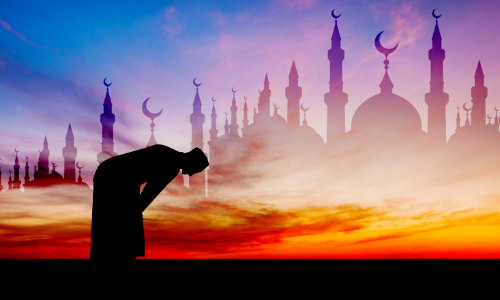Memories…
What is their true meaning, in essence?
To some, it’s a parent, a spouse, a friend, a child, a relative…
To others, it might be a house, a street, a neighborhood, a city, a country…
In the end, it’s a concept that changes based on perspective, in other words, it’s subjective.
Many of us were forced, willingly or unwillingly, to leave our beloved Turkey before or after July 2016. Following the principle that “the earth is a sample of His treasury of mercy,” we began to migrate to new lands.
Some thought that when they returned, they wouldn’t find their loved ones as they left them. They consoled themselves by saying, “At least our street, our house, our city, will remind us of our loved ones, our childhood, our youth.” They knew that worldly life is transient, not eternal, but still yearns for eternity. As stated by Bediüzzaman in the Second Point of the Second Item of the Third Letter, “Human beings innately have a passionate love for immortality. This love is such that, because of the faculty of imagination, humans first fancy a sort of immortality in everything they love, and this is why they love it. Whenever they think of or see the death of what they love, they cry out from the depths of their being.”[1] That’s why some of us mortgaged our hopes and memories to stone walls.
I was one of them.
On February 6, 2023, at 4:17 am, following the earthquake, my birthplace Hatay, the city where I grew up, and Adıyaman, the city where I collected memories for five years on every street and in every village, a city that inspired numerous folk songs—these cities were destroyed. And I also learned that other cities, such as Kahramanmaraş, Şanlıurfa, Gaziantep, Malatya, were devastated.
When I heard the news, I thought the city was gone. Watching the destruction of the streets I had wandered in the past on the screens, I believed that my memories had also ended, vanished.
The calls to my family and friends, asking about their situation, their response of “It’s chaos here, people are moaning, crying, and there’s nothing we can do,” triggered the tears in my eyes, along with the flood of memories in my mind.
The fire not only burned where it fell; it scorched the hearts of us all, even in distant lands. And it still burns.
After all this, I began to ask myself, “So what is a memory now?” Had my memories truly vanished along with the collapsed buildings? Yet, when I examined my mind, I realized that my memories were still fresh. I had mistakenly assumed they were destroyed due to the shock of the event.
No, memories cannot be mortgaged to stone walls. They shouldn’t be. So, what should be done?
They should be entrusted to prayers.
To entrust to prayers means to hand over to God.
Prayer is the essence of servitude and the result of firm faith.
“Those who pray demonstrate that the One ruling the universe is fully aware of all affairs, hears their prayers, and enables them to achieve their aims. Seeing that this Being does everything, they hope that He will fulfill their expectations.”[2]
Moreover, what is entrusted to God ever goes to waste?
On the contrary, it remains eternally.
That’s why we say, “O God, we package our memories in our prayers and send them to You.”
We know that You are the best guardian of our trust, because we have learned from You.
As expressed by the Sage Bediüzzaman in the Fourth Point of the Twenty-Fourth Letter, “The most beautiful, pleasurable, and quickest result of prayer is received by those who know that there is One Who has Absolute Power over everything, Who hears, pities, and cures their pains. They are not alone in this guesthouse of the world; rather, an All-Munificent One looks after them and provides them with companionship. They consider themselves in the presence of the Being Who satisfies all needs and overcomes all enemies. Feeling relief, as if a heavy burden were lifted, they say: “All praise be to the Lord of the Worlds.”[3]
[1] Bediüzzaman Said Nursi, The Gleams, New Jersey: Tughra Books, 2013, p. 25.
[2] Bediüzzaman Said Nursi, The Letters, New Jersey: The Light, 2014, p. 321.
[3] Ibid.




